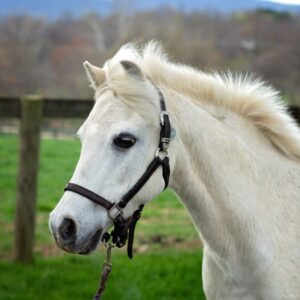 For one of the group classes at the therapeutic riding barn, we start on the ground standing in a circle. Everybody introduces themselves, and chooses a word that encapsulates their state at that moment, and that word goes on a magnetized white board. We have a number of words on magnetized strips–happy, mixed, scattered, angry, et cetera–but any word is fair game for adding to the board.
For one of the group classes at the therapeutic riding barn, we start on the ground standing in a circle. Everybody introduces themselves, and chooses a word that encapsulates their state at that moment, and that word goes on a magnetized white board. We have a number of words on magnetized strips–happy, mixed, scattered, angry, et cetera–but any word is fair game for adding to the board.
Because clients are involved, I pull my punches. If I’m actually steaming mad over somebody cutting me off in traffic, I might choose “distracted.” If my daughter just safely gave birth to a healthy baby, I’ll go with “happy” instead of ecstatic/relieved/worried. I don’t give much thought to this exercise before the lesson begins, in part because the volunteers are busy getting out tack, helmets, boots, and so forth.
 This week, I was bustling along the barn aisle with water bottles (each student has their own), when I spotted a stray word on the rubber mat at my feet. “Brave.” Must have fallen off the white board as somebody shuffled it out of the tack room. I picked it up and stuffed it into my pocket. The kids sometimes choose “Brave,” when they’re scheduled for their first ride or coming back after a hiatus. Good word, but my initial reaction was, “Not my word. My life is darned easy, and bravery isn’t much called for.”
This week, I was bustling along the barn aisle with water bottles (each student has their own), when I spotted a stray word on the rubber mat at my feet. “Brave.” Must have fallen off the white board as somebody shuffled it out of the tack room. I picked it up and stuffed it into my pocket. The kids sometimes choose “Brave,” when they’re scheduled for their first ride or coming back after a hiatus. Good word, but my initial reaction was, “Not my word. My life is darned easy, and bravery isn’t much called for.”
But then I got to thinking about what a timid driver I became during the pandemic–me, the queen of the coast to coast to road trip. About how I dread every lab report because  the news might be worse than last time. About how artificial intelligence–built largely on literary and artistic piracy–could well put me out of business as an author, and very soon. About climate change…
the news might be worse than last time. About how artificial intelligence–built largely on literary and artistic piracy–could well put me out of business as an author, and very soon. About climate change…
Maybe brave was the word I was supposed to find that morning. I realized that for those kids to simply say how they feel takes bravery. For the instructors to put the students up on 1500-pound beasties of independent will takes bravery. For all of us to get in our cars, turn on the news, and just go about life takes bravery.
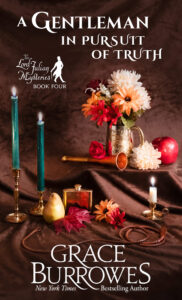 So I listed brave as my word that day–it fit better than I thought it did. I call on my courage more often than I realized, and so do the people around me. Have you seen any bravery lately? Have you had occasion to call up some courage of your own? Did the universe ever present you with unexpectedly appropriate “random” food for thought?
So I listed brave as my word that day–it fit better than I thought it did. I call on my courage more often than I realized, and so do the people around me. Have you seen any bravery lately? Have you had occasion to call up some courage of your own? Did the universe ever present you with unexpectedly appropriate “random” food for thought?
The e-ARCs for Lord Julian’s fourth tale, A Gentleman in Pursuit of Truth, are on their way out the door. If you’d like one, email me at [email protected]. The print version has just gone live on Amazon.









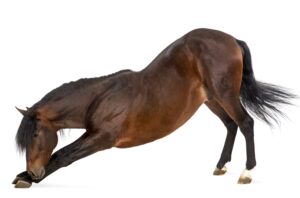 So there I was, maybe twenty years old, sitting on the piano bench at the dance studio where I worked as an accompanist. My usual classes were all ballet, and I played classical music for those. Never have I grown so bored with eight measure phrases (or so good at hacking nearly any piece of repertoire into eights bars). On this particular occasion, I was filling in for the pianist who handled the modern dance classes, and those began not at the barre, but on the floor, with stretching.
So there I was, maybe twenty years old, sitting on the piano bench at the dance studio where I worked as an accompanist. My usual classes were all ballet, and I played classical music for those. Never have I grown so bored with eight measure phrases (or so good at hacking nearly any piece of repertoire into eights bars). On this particular occasion, I was filling in for the pianist who handled the modern dance classes, and those began not at the barre, but on the floor, with stretching. legs. The instructor was right. At that point, I’d been spending four hours a day on the piano bench for years (practicing), and then I’d do more hours for the accompanist gig, or class reunions and wedding receptions. My young adult back was killing me, and stretching helped.
legs. The instructor was right. At that point, I’d been spending four hours a day on the piano bench for years (practicing), and then I’d do more hours for the accompanist gig, or class reunions and wedding receptions. My young adult back was killing me, and stretching helped. Villains don’t or can’t stretch. They shrink, getting more and more vindictive, greedy, narrow-minded, and selfish as their stories progress, and at some point (I haven’t always done this well), when they are presented with an opportunity to stretch, they refuse the challenge.
Villains don’t or can’t stretch. They shrink, getting more and more vindictive, greedy, narrow-minded, and selfish as their stories progress, and at some point (I haven’t always done this well), when they are presented with an opportunity to stretch, they refuse the challenge. I like writing about Regency England for many reasons, not the least of which is that it was the last period in English history when the majority of the population lived on the land. After 1850, the balance tipped into the cities, despite disastrous results (at least for a time) for many in terms of life expectancy, infant mortality, and standard of living.
I like writing about Regency England for many reasons, not the least of which is that it was the last period in English history when the majority of the population lived on the land. After 1850, the balance tipped into the cities, despite disastrous results (at least for a time) for many in terms of life expectancy, infant mortality, and standard of living. People like Jethro Tull (1674-1741) and Arthur Young (1741-1820) looked at where farming was going well (French and Italian vineyards, and Northern Belgium for example), and where it struggled (much of England), and capitalized on their observations with improved methodology or technology. Tull gets credit for inventing the English version of the seed drill, which planted a seed at the correct depth, and covered it with tilled soil, in easily watered and weeded rows, and for creating a horse-drawn hoe, that aerated soil and dug up weeds.
People like Jethro Tull (1674-1741) and Arthur Young (1741-1820) looked at where farming was going well (French and Italian vineyards, and Northern Belgium for example), and where it struggled (much of England), and capitalized on their observations with improved methodology or technology. Tull gets credit for inventing the English version of the seed drill, which planted a seed at the correct depth, and covered it with tilled soil, in easily watered and weeded rows, and for creating a horse-drawn hoe, that aerated soil and dug up weeds. By now you are wondering, “Grace, what are you going on about?”
By now you are wondering, “Grace, what are you going on about?” That basic idea of crop rotation–change of purpose is refreshing in itself–is central to how I manage my creativity and my life. In this dreary winter month, are there any gardening or farming metaphors that have helped keep you on track or moving forward in the difficult times?
That basic idea of crop rotation–change of purpose is refreshing in itself–is central to how I manage my creativity and my life. In this dreary winter month, are there any gardening or farming metaphors that have helped keep you on track or moving forward in the difficult times? My maternal grandmother, Mary Scholastica, was of Irish immigrant extraction, and began her married life in a tent at a Colorado mining camp. She gave birth to my Uncle Alan in that same tent nine months later. Mary had been seventeen when her mother died of peritonitis following a burst appendix. Mary’s dad was Leadville’s town doctor, but he was off delivering somebody’s twins when his wife became mortally ill. Such was life, more than a century ago.
My maternal grandmother, Mary Scholastica, was of Irish immigrant extraction, and began her married life in a tent at a Colorado mining camp. She gave birth to my Uncle Alan in that same tent nine months later. Mary had been seventeen when her mother died of peritonitis following a burst appendix. Mary’s dad was Leadville’s town doctor, but he was off delivering somebody’s twins when his wife became mortally ill. Such was life, more than a century ago.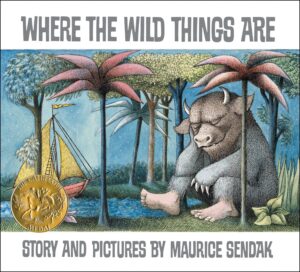 Ina married a Doughboy and ended up widowed with a baby at age nineteen. She married my grandpa next, and they managed pretty well through the Depression, but infidelity and drink took a toll on the union, and Ina ran off with her husband’s brother (my uncle John). She eventually married him and dumped him too (another drinker), and at the age sixty of she opened the candy store that would support her for the final twenty years of her life. She wore faux mink stoles and bright red lipstick, and referred to the contents of her voluminous handbags as her “plunder.”
Ina married a Doughboy and ended up widowed with a baby at age nineteen. She married my grandpa next, and they managed pretty well through the Depression, but infidelity and drink took a toll on the union, and Ina ran off with her husband’s brother (my uncle John). She eventually married him and dumped him too (another drinker), and at the age sixty of she opened the candy store that would support her for the final twenty years of her life. She wore faux mink stoles and bright red lipstick, and referred to the contents of her voluminous handbags as her “plunder.”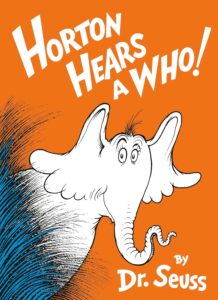 In later life, I think about my grandmas a lot. They dwelled in times that were in some ways awful for women (and no picnic for much of anybody). Ina broke a lot of rules, Mary endured all manner of upheaval trying to keep her family thriving during the Depression. Both women had an excellent sense of humor, a lot of pragmatism, and a compassionate view of humanity. The older I get, the more I admire them.
In later life, I think about my grandmas a lot. They dwelled in times that were in some ways awful for women (and no picnic for much of anybody). Ina broke a lot of rules, Mary endured all manner of upheaval trying to keep her family thriving during the Depression. Both women had an excellent sense of humor, a lot of pragmatism, and a compassionate view of humanity. The older I get, the more I admire them.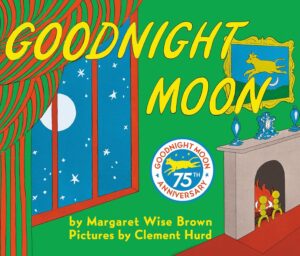 I’m not a mining engineer’s wife in the wilds of Colorado or a teenage military widow in the Roaring Twenties or anything much very exciting. What I do feel though, knowing that this particular small person is inheriting the world I’ve lived in for decades, is renewed determination that it should be a good world, worthy of him and his confreres. And I promise you this, bloggin’ buddies, that boy will never want for good books, and my first official act as a grandma will be to read him a bedtime story.
I’m not a mining engineer’s wife in the wilds of Colorado or a teenage military widow in the Roaring Twenties or anything much very exciting. What I do feel though, knowing that this particular small person is inheriting the world I’ve lived in for decades, is renewed determination that it should be a good world, worthy of him and his confreres. And I promise you this, bloggin’ buddies, that boy will never want for good books, and my first official act as a grandma will be to read him a bedtime story. One of the little lectures I used to give myself before court every Thursday was, “Eyes up and soft.” No glowering at the judges, bailiffs, or opposing counsel. No fumbling around, nose in the file, as a child tries to tell me why she doesn’t want a chambers conference with the judge. Eyes up–look where you’re going, Grace Ann, see the world around you–and soft. Not combative or anxious or pre-occupied. Look out upon the world compassionately.
One of the little lectures I used to give myself before court every Thursday was, “Eyes up and soft.” No glowering at the judges, bailiffs, or opposing counsel. No fumbling around, nose in the file, as a child tries to tell me why she doesn’t want a chambers conference with the judge. Eyes up–look where you’re going, Grace Ann, see the world around you–and soft. Not combative or anxious or pre-occupied. Look out upon the world compassionately.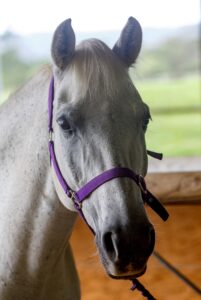 Second, I did something affirmative at a point in the ride where my circuits might be shutting down because “He spooked!” “He’s gonna spook!” (and now that I’ve cued the horse that panic is order,) “He’s gonna spook again!” In court that equated to, “My client is pissed at me!” “The judge is pissed at me!” “Everybody’s pissed at me, and the witness is lying like a rug.” By invoking the eyes-up strategy and taking charge of even my own chin, I move one step back from the anxiety and anger.
Second, I did something affirmative at a point in the ride where my circuits might be shutting down because “He spooked!” “He’s gonna spook!” (and now that I’ve cued the horse that panic is order,) “He’s gonna spook again!” In court that equated to, “My client is pissed at me!” “The judge is pissed at me!” “Everybody’s pissed at me, and the witness is lying like a rug.” By invoking the eyes-up strategy and taking charge of even my own chin, I move one step back from the anxiety and anger. cussing). To ride like this a beautiful super power, one that has saved many an “impossible” horse from a bad fate.
cussing). To ride like this a beautiful super power, one that has saved many an “impossible” horse from a bad fate.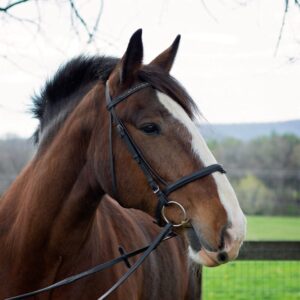
 For therapeutic barns, the challenges multiply with significant certification requirements, a unique client population, and enormous funding demands (wheel chair ramps, mats, adaptive equipment, annual trainings…). But somehow, LTR has not only persisted, but thrived.
For therapeutic barns, the challenges multiply with significant certification requirements, a unique client population, and enormous funding demands (wheel chair ramps, mats, adaptive equipment, annual trainings…). But somehow, LTR has not only persisted, but thrived.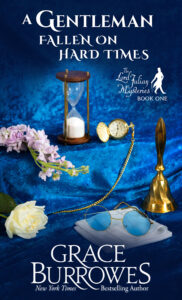 anthologies to join. Focus on what’s working, and do more of that. You will never solve the whole Rubik’s cube, but you can focus on what you do best as an author, and what processes work best for you.”
anthologies to join. Focus on what’s working, and do more of that. You will never solve the whole Rubik’s cube, but you can focus on what you do best as an author, and what processes work best for you.”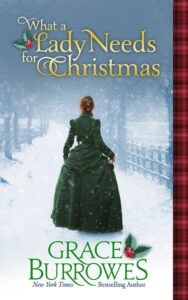 What have you noticed lately going right, being done right, working just as it should or maybe even better?
What have you noticed lately going right, being done right, working just as it should or maybe even better? The Thanksgiving holiday meant I had a week with no obligations off the property. This hasn’t happened for a while, so I decided to make it a low RPMs week. I’ve done my daily writing sessions (nothing like a
The Thanksgiving holiday meant I had a week with no obligations off the property. This hasn’t happened for a while, so I decided to make it a low RPMs week. I’ve done my daily writing sessions (nothing like a  Compost heap the outdated food gathering dust on the pantry shelves. The raccoons, skunks, groundhogs, and possums don’t know from expiration dates, and the nights are getting chilly.
Compost heap the outdated food gathering dust on the pantry shelves. The raccoons, skunks, groundhogs, and possums don’t know from expiration dates, and the nights are getting chilly.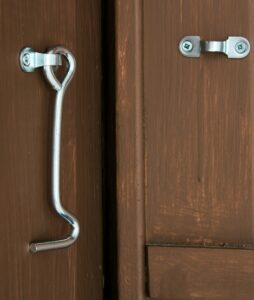 I might run out of steam tomorrow, but so far… I am liking this trend, for two reasons. First, I’m happier in my house. I don’t see the dirt the way some people do, but I still live here, and my environment has an impact on my outlook. The endless paw prints, the flying cloves… they take a micro-toll on my energy and joy, and why pay extra tolls?
I might run out of steam tomorrow, but so far… I am liking this trend, for two reasons. First, I’m happier in my house. I don’t see the dirt the way some people do, but I still live here, and my environment has an impact on my outlook. The endless paw prints, the flying cloves… they take a micro-toll on my energy and joy, and why pay extra tolls? To donate fifteen minutes a day to the longer term dignity and peace of my dwelling, to be able to say, “That’s a little better!” about the place where I live, feels good. I am deserving of a pleasant home–everybody is–and taking baby steps to bring that boon closer reminds me that charity begins at home.
To donate fifteen minutes a day to the longer term dignity and peace of my dwelling, to be able to say, “That’s a little better!” about the place where I live, feels good. I am deserving of a pleasant home–everybody is–and taking baby steps to bring that boon closer reminds me that charity begins at home. I left the practice of law because a contract I’d held for twenty-five years (representing foster children in my county) was awarded to another vendor who had much higher prices, no experience in my jurisdiction, and no staff in my jurisdiction when all three factors were mandatory bid evaluation criteria.
I left the practice of law because a contract I’d held for twenty-five years (representing foster children in my county) was awarded to another vendor who had much higher prices, no experience in my jurisdiction, and no staff in my jurisdiction when all three factors were mandatory bid evaluation criteria. When my former husband asked for a divorce, I was sad and bewildered (“Did I do something wrong?” “No.”), but you can’t make another person happy, so best of luck, and off we go.
When my former husband asked for a divorce, I was sad and bewildered (“Did I do something wrong?” “No.”), but you can’t make another person happy, so best of luck, and off we go.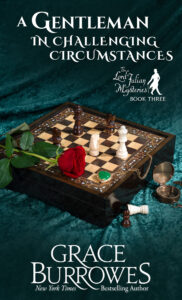 I did not see getting voted off the horseback riding island coming. I’ve been a lover of horses since childhood. Long before I was a lawyer, musician, writer, or much of anything… I loved horses. I was a horse girl. I am still a horse girl (the only context where I will permit my very adult self to be designated as any sort of girl). I am not done looking for ways to get back in the saddle, but I’m a bit daunted. Not daunted enough to buy another horse (yet), but pretty close.
I did not see getting voted off the horseback riding island coming. I’ve been a lover of horses since childhood. Long before I was a lawyer, musician, writer, or much of anything… I loved horses. I was a horse girl. I am still a horse girl (the only context where I will permit my very adult self to be designated as any sort of girl). I am not done looking for ways to get back in the saddle, but I’m a bit daunted. Not daunted enough to buy another horse (yet), but pretty close. When I draft a scene, the initial result is often what writers call, “Talking heads in a white room.” I hear the scene first: What are the characters saying? What are the ambient sounds? Are the birdies tweeting as harbingers of budding attraction, or is conversation impeded by somebody doing a bad job of minor scales on the clarinet two rooms away?
When I draft a scene, the initial result is often what writers call, “Talking heads in a white room.” I hear the scene first: What are the characters saying? What are the ambient sounds? Are the birdies tweeting as harbingers of budding attraction, or is conversation impeded by somebody doing a bad job of minor scales on the clarinet two rooms away? Setting matters. Setting can be full of micro-symbols (cooing doves), foreshadowing (why minor scales, and is there any sneakier instrument than the clarinet?), or create conflict. Is Lord Hopeless trying to propose while a marching band goes by? Is Miss Villainous pouring lies into Our Hero’s ear in the same beautiful lakeside folly where he first kissed Our Heroine three scenes ago?
Setting matters. Setting can be full of micro-symbols (cooing doves), foreshadowing (why minor scales, and is there any sneakier instrument than the clarinet?), or create conflict. Is Lord Hopeless trying to propose while a marching band goes by? Is Miss Villainous pouring lies into Our Hero’s ear in the same beautiful lakeside folly where he first kissed Our Heroine three scenes ago? I love to be home. It’s my favorite place in the whole world, though my house is more quirky than lovely. And yet, I rarely get my best writing ideas at home. My happy place for plotting is behind the wheel of my car. I associate my car with safety (hard to flee a natural disaster on foot), mobility, independence, purpose, competence… all good things. I’ve driven every major east-west interstate in the country, and invariably, I did that driving in silence.
I love to be home. It’s my favorite place in the whole world, though my house is more quirky than lovely. And yet, I rarely get my best writing ideas at home. My happy place for plotting is behind the wheel of my car. I associate my car with safety (hard to flee a natural disaster on foot), mobility, independence, purpose, competence… all good things. I’ve driven every major east-west interstate in the country, and invariably, I did that driving in silence.
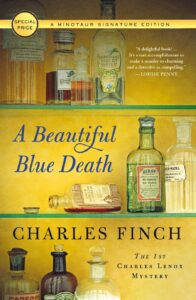 I came across two ideas this week that feel related. First, in the
I came across two ideas this week that feel related. First, in the 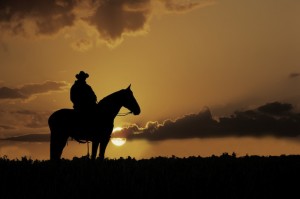 One of the casualties of the pandemic for me was my sense of time passing in discreet, orderly units. Days blended into weeks and months, some years went by, and now… I can mostly tell you what day of the week it is, and even get the date right too, but it’s still not automatic, and it should be. It used to be.
One of the casualties of the pandemic for me was my sense of time passing in discreet, orderly units. Days blended into weeks and months, some years went by, and now… I can mostly tell you what day of the week it is, and even get the date right too, but it’s still not automatic, and it should be. It used to be.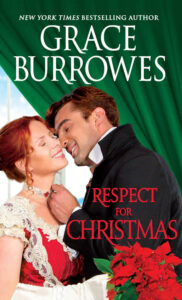 I will think more on this business of shutdown rituals and rest of the year resolutions. Both topics help me focus on being present in the time I have, in the situation I’m in, and that’s generally a good thing.
I will think more on this business of shutdown rituals and rest of the year resolutions. Both topics help me focus on being present in the time I have, in the situation I’m in, and that’s generally a good thing.